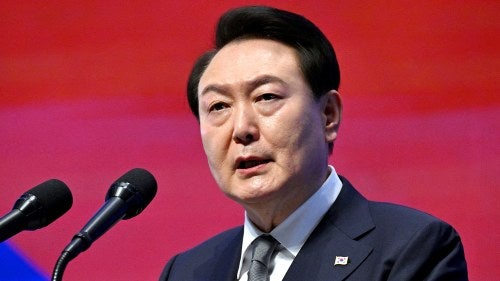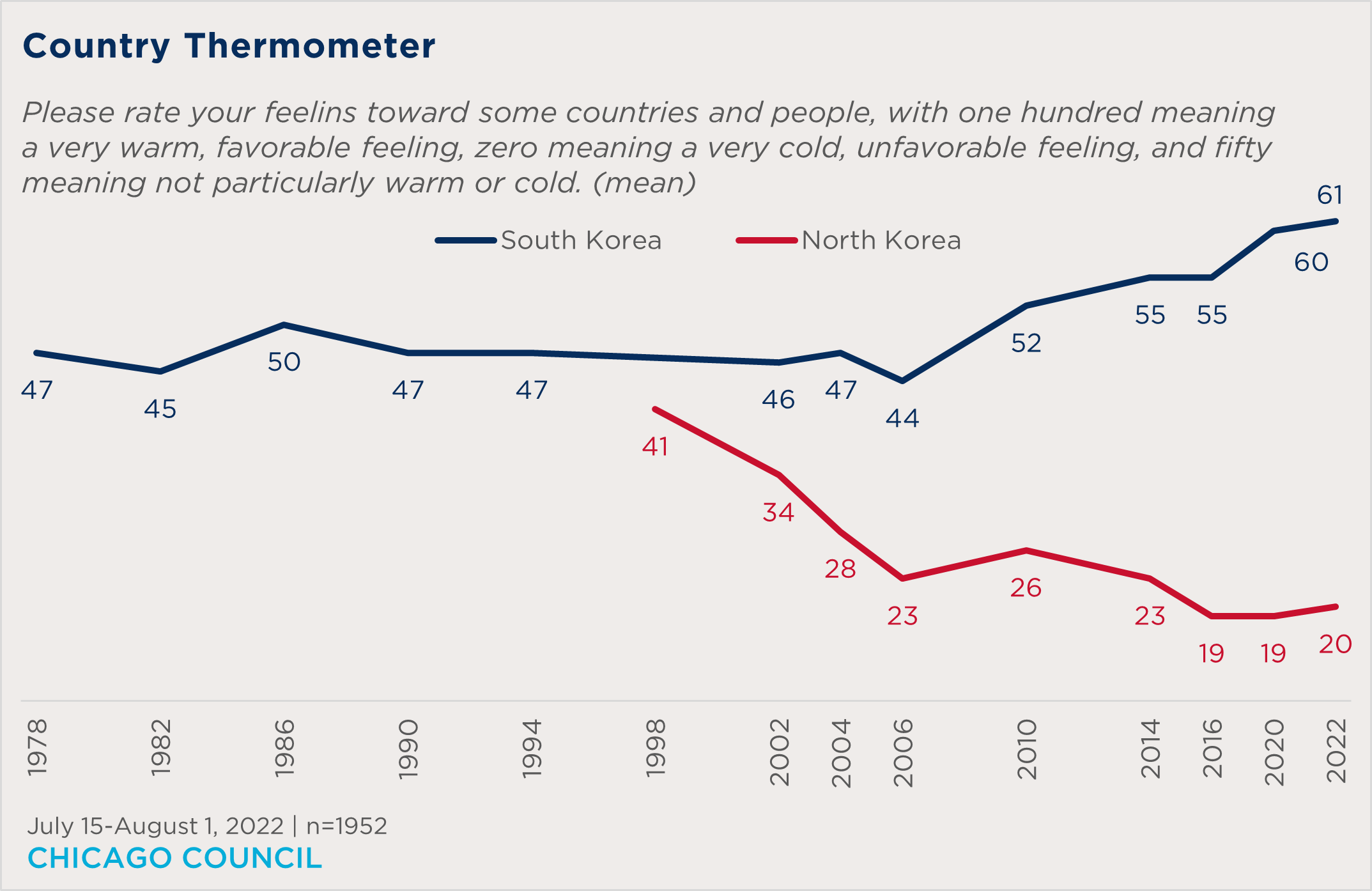Yoon Takes Washington

Yoon Suk-yeol’s Polarizing First Year
South Korean President Yoon Suk-yeol capped off his first year in office with a state visit to Washington, walking away with a deal to forego a domestic nuclear weapons program in exchange for greater input into US deterrence strategies on the Peninsula. While the agreement will likely be unpopular at home, where the public is in favor of Seoul having its own arsenal, recent polling suggests the backlash won’t limit Yoon’s ability to advance other aspects of his agenda.
“Support from his base now appears unwavering, allowing Yoon to use the country’s deep polarization to push toward his vision for the future—controversy be damned. That vision is ill-defined, but has loosely been called neoliberal based on proposed reforms in education, labor, health care, and the national pension,” Marshall M. Bouton Fellow for Asia Studies Karl Friedhoff writes in the Diplomat. “He has also made redefining relations with Japan a centerpiece of his foreign policy.”
Curious about how attempts at strengthening ties with Tokyo are going? Listen to the latest episode of our Deep Dish podcast for more insights into the historically tense relationship.
The Data Dimension
How do Americans view South Korea? When asked in 2022 to rate their feelings toward the country on a thermometer scale of zero to 100, the US public gave Seoul a toasty 61—its highest favorability score ever recorded in Chicago Council surveys.

What We're Watching
- The US-Australia alliance: Recent polling finds both publics are on the same page when it comes to many issues in the Indo-Pacific—but not necessarily on how to deal with China. Assistant Director Craig Kafura digs into the data in a new Pacific Forum report.
- Saudi security assistance: Senior Fellow Elizabeth Shackelford unpacks a bipartisan push to strengthen congressional oversight on US arms sales in the wake of human rights violations.
- AI’s economic impact: While artificial intelligence applications like ChatGPT may impact the job market, they can't replace the need for human fail-safes, Nonresident Fellow Paul Poast argues.
- The future of the Israeli-Palestinian conflict: Intern Paul Fitchen talks with two experts on potential pathways to peace after 75 years of struggle.
Ask an Expert
What role has Russia played in the crisis in Sudan?

“The information that we have suggests that Russia has been helping Hemedti and his RSF forces providing weapons and other supplies to assist them. [...] Russia has an interest in trying to get a naval base on the coast of Sudan and this is perhaps an effort to ensure that the side that Russia is closest to ends up in charge, which would be of course very dangerous. But at this stage, my biggest concern is that if Russia is continuing to provide assistance to one side of this conflict then we're not going to see an end or ceasefire any time soon.”
—Senior Fellow Elizabeth Shackelford on Sirius XM’s The Briefing

